When my daughter skipped town to hop trains, I embarked on a wild, dozen-year voyage to understand why, by hanging around train yards, talking to modern hobos, and getting to know rail workers. I told that story in my podcast, City of the Rails. But there was a piece of the story I knew I could only tell with the help of the investigative journalism non-profit ProPublica.
In February 2022, investigative journalist Dan Schwartz and I pitched ProPublica an investigation into the railroads. The railroads say they put safety first, but I’d heard many stories of them covering up worker injuries and employees getting fired for reporting safety hazards. Who was telling the truth?
ProPublica assigned a team of eight other journalists to uncover what was missing from the industry’s stats: a dangerous pattern of long train derailments and an array of hazards ignored by the railroads. Trains sailed through rail yards like ticking time bombs, such as the train with flammable cargo that got away from its crew and rolled through two public crossings before it was back under control. Because it didn’t crash, the federal regulations didn’t require the company to report it.
In all, we wrote twelve stories for the series Train Country that shocked readers into taking a look at a dangerous world right in front of their noses that they never had examined. Readers and legislators gasped viewing our footage of children on their way to school who were forced to climb between the cars of stalled trains. Others were alarmed to find out that railroads now routinely run trains three miles long, or longer, and there are no federal rules to regulate these dangerous beasts.
In February 2023 the news caught up to our reporting.
We were more than a year into the investigation when a two-mile-long freight train derailed spectacularly in East Palestine, Ohio, unleashing poison across a three-hundred mile radius. After East Palestine, suddenly the railroads were in the spotlight. Lawmakers everywhere called for reform. Our work was featured in a hilarious, must-watch spoof on “Last Week Tonight with John Oliver” featuring Thomas the Tank Engine.
While that issue has faded from the headlines, I’m incredibly proud of the work we did to reveal the root causes of these catastrophes. As one of the officials from Railroad Workers United wrote to ProPublica’s editor in chief, “You have blown the whistle on the rail industry, the likes of which we have never seen.Your important work is inspiring rail workers to come forward with their stories, to get involved, and to regain a sense of optimism that they are able to fight back and make a difference.”
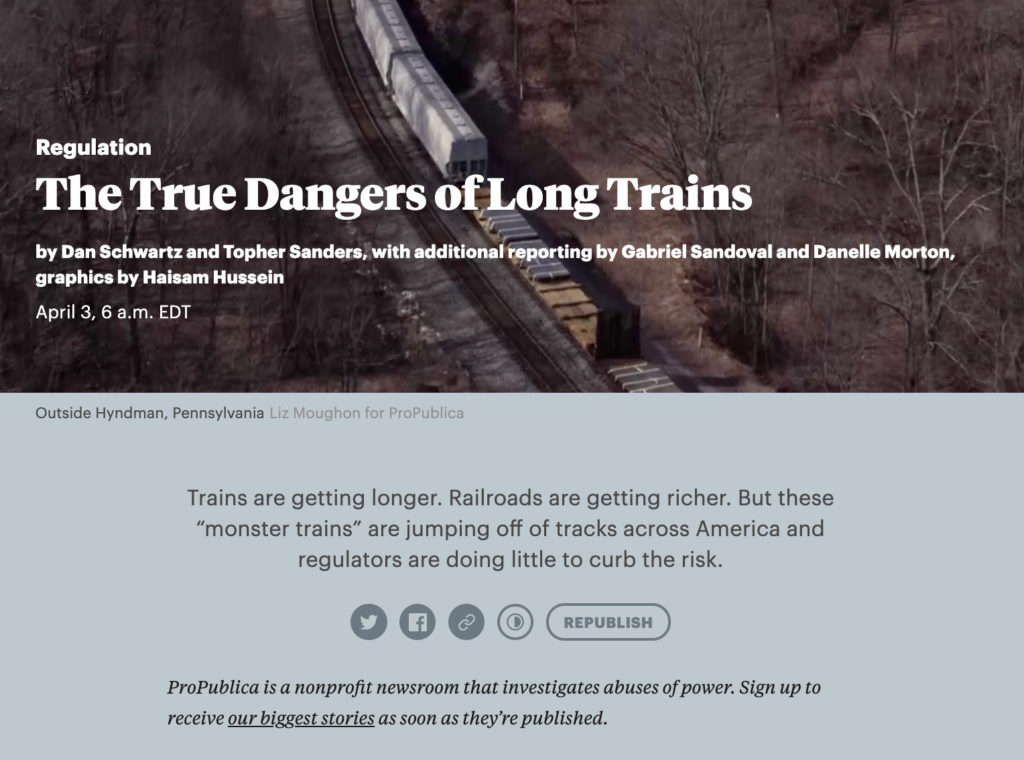
The True Dangers of Long Trains
by Dan Schwartz and Topher Sanders, with additional reporting by Gabriel Sandoval and Danelle Morton, graphics by Haisam Hussein
Trains have been getting longer and longer, often two to three miles long, but no government body has determined if these train increase dangers to the community. In this story, the ProPublica team uncovers the real dangers of long trains.
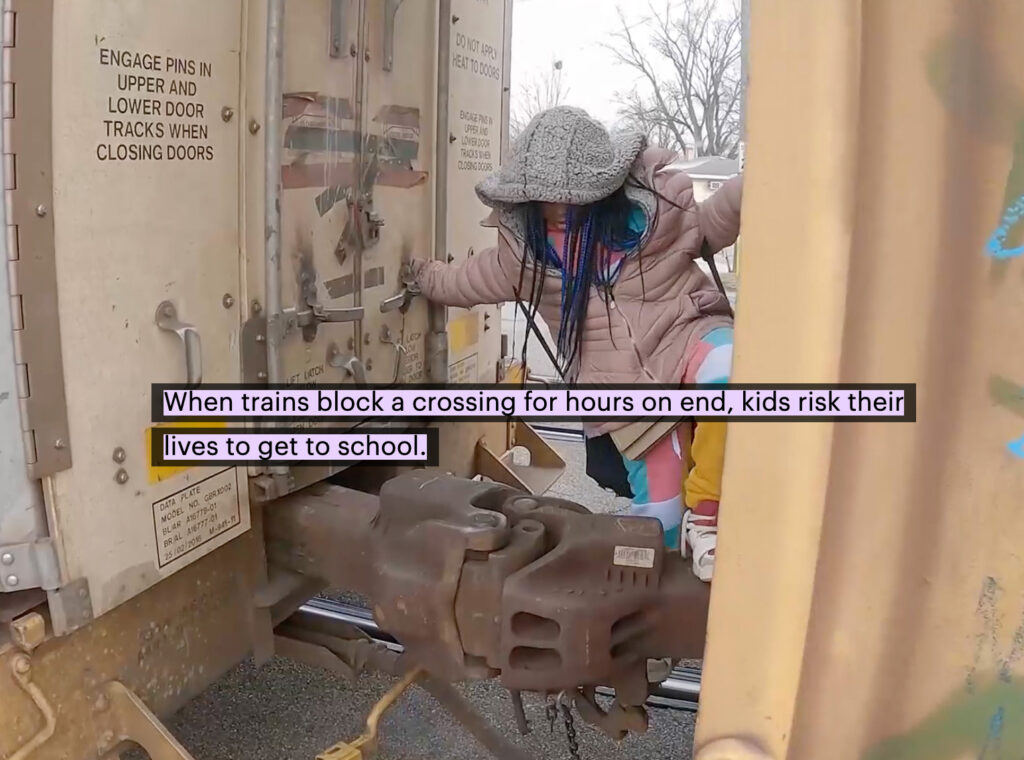
As Rail Profits Soar, Blocked Crossings Force Kids to Crawl Under Trains to Get to School
by Topher Sanders and Dan Schwartz, ProPublica, and Joce Sterman, Gray Television/InvestigateTV
When long trains get stalled outside the rail yard, small children must climb through them to get to school, and first responders can’t get to people who need ambulances or firefighters. Cities and states who pass laws to regulate this practice find out nothing they do can rein in the railroads.
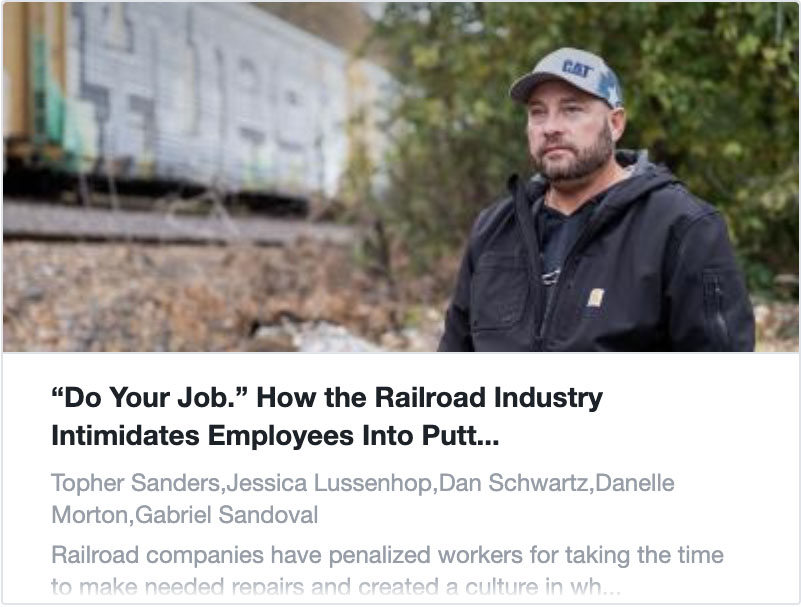
“Do Your Job.” How the Railroad Industry Intimidates Employees Into Putting Speed Before Safety
by Topher Sanders, Jessica Lussenhop, Dan Schwartz, Danelle Morton and Gabriel Sandoval
Under relentless pressure to keep trains moving – and profit margins high – this story shows how employees are threatened with being fired for slowing freight trains when they spot safety problems.
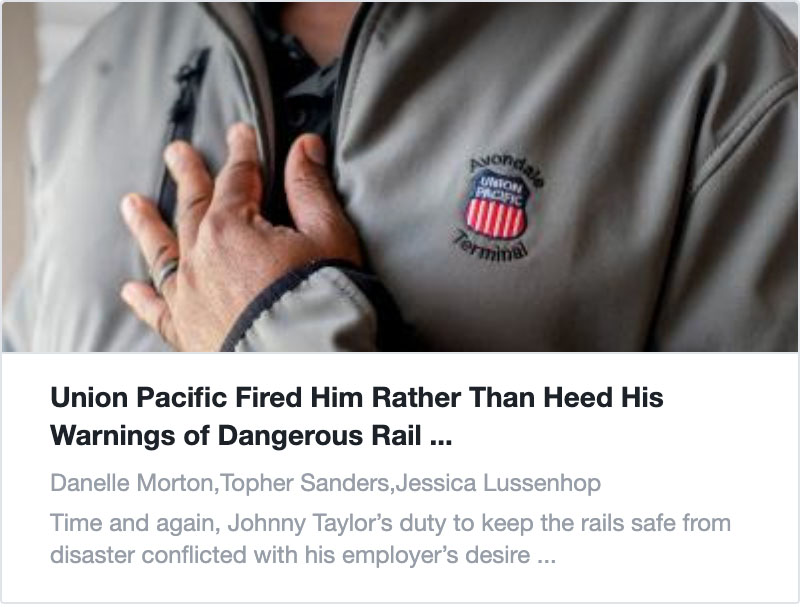
Union Pacific Fired Him Rather Than Heed His Warnings of Dangerous Rail Conditions
by Danelle Morton and Topher Sanders, with additional reporting by Jessica Lussenhop
Johnny Taylor was a track inspector just trying to do his job in a marshy train yard in the Louisiana bayou. As Union Pacific started moving more crude oil through his territory, Taylor realized doing his job well likely would get him fired. The story describes how Taylor stood up to the railroad, and the price he paid.
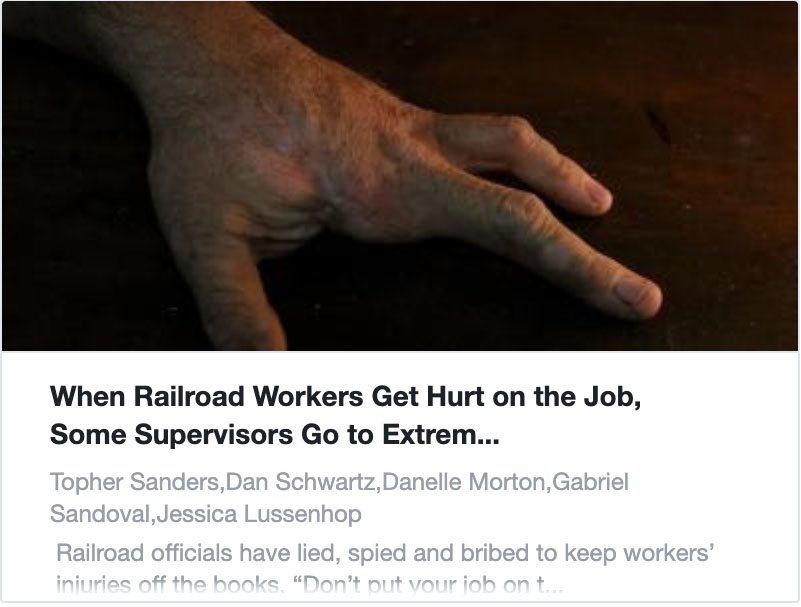
When Railroad Workers Get Hurt on the Job, Some Supervisors Go to Extremes to Keep It Quiet
by Topher Sanders, Dan Schwartz, Danelle Morton, Gabriel Sandoval and Jessica Lussenhop
Railroad officials have lied, spied and bribed to keep workers injuries off the books, because each injury impacts supervisors lucrative bonuses and promotions. This is a shocking tale of neglect and abuse in one of the most dangerous workplaces in the United States.
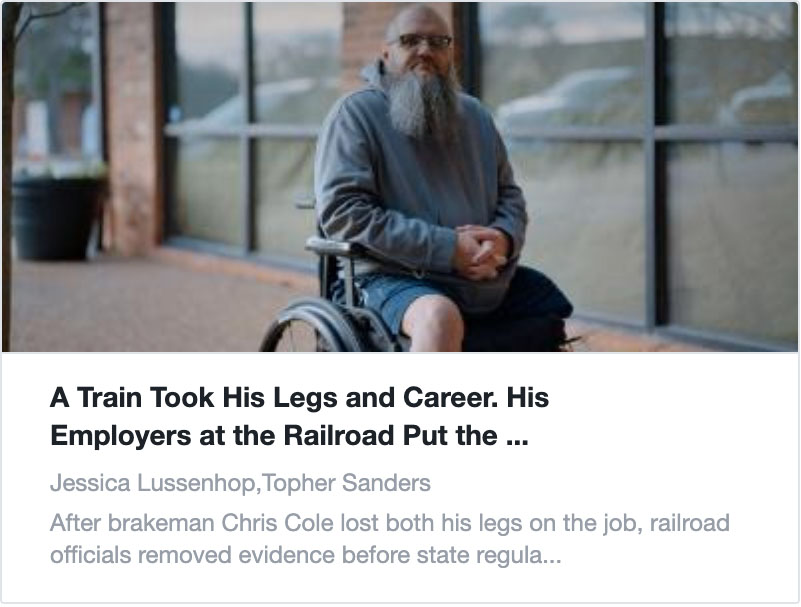
A Train Took His Legs and Career. His Employers at the Railroad Put the Blame on Him
by Jessica Lussenhop and Topher Sanders
Injured railroad workers often sue their employers for the actions ProPublica detailed in this series. When they do, the railroads have a shocking history of hiding evidence, covering up official actions and trying to ruin the character of the complainant.
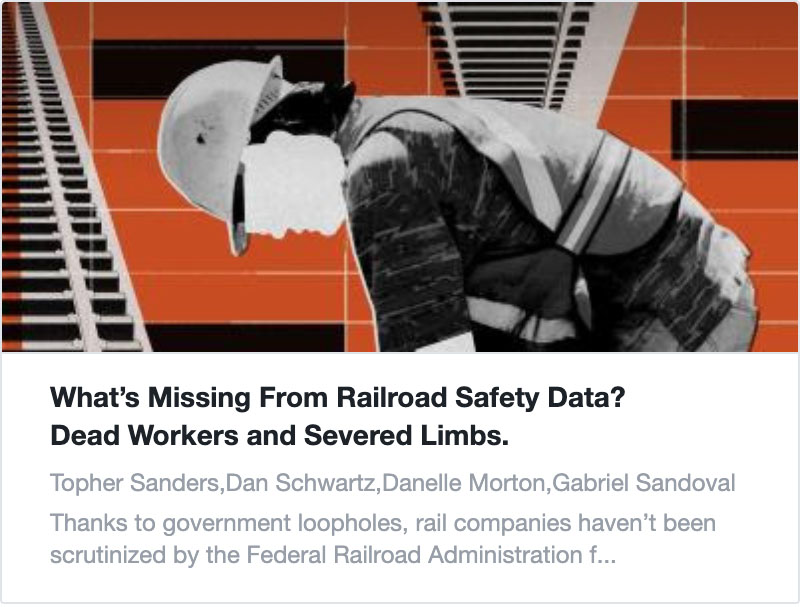
What’s Missing From Railroad Safety Data? Dead Workers and Severed Limbs.
by Topher Sanders, Dan Schwartz, Danelle Morton and Gabriel Sandoval
There’s plenty of loopholes in the way rail safety data is reported to the government, mainly because the railroads can decide what they don’t need to report. This final story in the series takes a deep dive into the gaps in reporting that allow severe accidents, and even deaths, to go unreported.
More award-winning journalism by Danelle
In addition to working with ProPublica, Danelle has written for many local and national publications and outlets. Below is a sample of her other magazine writing.
A World on Fire
Boston Review
In December 2010 eight young train-hopping travelers died in a squat fire in a derelict part of New Orleans. They had lived life that embraced danger as the thing made them feel alive: begging for spare change, diving in dumpsters for food, sleeping anywhere they could throw down their sleeping bags. When my daughter chose this life for 18 months later she said I would never understand why she did what she did. When these eight kids died I wanted to understand them as a way of understanding her. This story was a finalist for the PEN/USA literary non-fiction award.
An Inconvenient Barn
San Francisco Magazine
On the far edge of real estate-mad San Francisco stands a structure that is a throwback to the city’s history, yet right in the middle of a huge new housing development. The clash between the developer and the irascible owner of the Barn took two years of negotiations. The story shows how they came to and an only-in-San Francisco solution.
War of Values
San Francisco Magazine
Between 2005 and 2008, an epic battle raged in San Francisco over who could afford to live here. My 8000-word investigative piece described how the city’s dominant landlords, the Lembi family of CitiApartments fame, bought up every building they could get their hands on, from the Tenderloin’s rattiest dumps to Nob Hill’s ritziest penthouses, with an audacious plan to drive up everyone’s rent. And their money came from the same financial geniuses who brought the world economy to its knees. The story was a finalist for the American Society of Magazine Editors Public Affairs award.